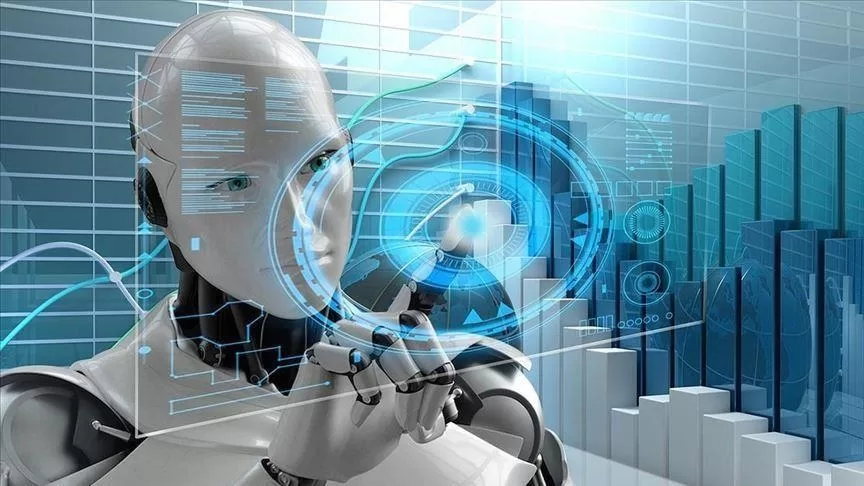Like many people this past year, I have gotten into the habit of looking ahead. Part of that is waiting for better days to come, and another part is to join into the collective speculation of what a post-pandemic world is going to look like. In doing so, however, it has made me realize how little I previously tried to imagine what society will look like by the time I am old and gray.
My grandfather plowed with horses as a child and as a teenager collected the milk cans from local farms. By the end of his life he had seen robots milk cattle and tractors work a field with GPS. In my own lifetime, I remember hearing about this thing called the internet, and by no means could have conceived the ways it would eventually change the lifescape of our existence and ultimately the way society works. By now I’m at the age where I’m more likely to be found chiding the youth for their addictions to their phones than I would celebrating technological progress. However, of late I’ve been more curious of what changes might be ahead.
Ray Kurzweil is an American inventor in the field of speech recognition, but is more widely known for his work as a “futurist.” Kurzweil initially gained recognition from the fact that his first book, The Age of Intelligent Machines (1990), accurately foresaw just how ubiquitous the internet would become in everyday life and anticipated most of its now-common uses. While seeming obvious today, at the time that the book was published the internet was rarely available outside of military and academic centers, and was too technical for the average person to use. In total, between his first two books (the second published in 1999), Kurzweil made 108 predictions—90 of which he claims have come true. Whether all 90 assertions hold up to close scrutiny or not, it is eerie how many forthcoming technologies Kurzeil anticipated that no one else did.
Currently, Kurzweil is most talked about for his thoughts on what is termed The Singularity. Having long foresaw the day when computers beat world chess champions, Kurzeil expects nanotechnology to continue to advance and eventually permanently change the existence of the world. He traces the anticipated trajectory of improvements in artificial intelligence and biotechnology, as well as the ways humans are likely to incorporate them.
In his 2005 predictions, the further Kurzweil projected into the future the more his ideas seemed like science fiction. Nonetheless, some of his more immediate claims have already hit their mark or been preceded. For example, he believed that a computer would pass the Turing Test this decade—meaning that its intelligence would be equal to and couldn’t be distinguished from human intelligence. In 2014, the University of Reading claims that a chatbot named Eugene Goostman was successful, convincing enough judges at the Royal Society of London that he was a 13-year-old Ukrainian boy.
As the Turing Test being passed for the first time since it was created in the fifties seemed unlikely in 2005, so does explaining now what Kurzweil believes will come. Before the end of 2029 he suspects nanobots (essentially robots the size of a nanometer) will be used in our body to improve its function and fight off diseases. By the 2030s, humans will have the capability to upload our minds onto software, being able to live on the internet without physical bodies, as well as take advantage of nanomachines that can be inserted into our brains to improve our cognitive function. If that sounds hard to imagine, wait until 1945, when The Singularity is to occur.
Kurzweil expects the capabilities of artificial intelligence to surpass that of humans before the midpoint of this century. As a result, they will take over technological development and enter a “runaway reaction” of self-improvement cycles, increasingly becoming more capable—to the point that biological humans can’t even comprehend what they’re doing. However, while it is possible that robots may violently extinguish the human population, Kurzweil believes that is unlikely. This is because by then there will be little distinction between human and machine, because humans will be so cybernetically enhanced that they would be mostly computers themselves.
The predictions of Ray Kurzweil sound like the ideas of someone wearing a tin foil hat—or at least an overly invested Sci-Fi script writer. I, myself, still find it unlikely that computers are going to rule the universe by the time I’ve lived a full life. However, Kurzweil isn’t a crazy man living in a trailer in the woods. In 1999 he was given the National Medal of Technology and Innovation—the United States’ highest honor in technology, and later the Lemelson-MIT Prize, which is worth a half a million dollars. He was inducted into the National Inventors Hall of Fame and honored by three presidents. Perhaps more significant than all of that, his last collective body of predictions were made in 2005, and they’ve been accurate enough thus far to remain relevant in discussion.
More than a year into the pandemic, there’s certain phrases that have become so commonplace that people don’t even realize they’re saying them. One that is repeated more than most is “Who could have seen this coming?” If anything, it’s a reminder that the future is always going to bring change, and some of it will be radical. Maybe it’s going to become increasingly possible that artificial intelligence takes over the world, and by the time it happens no one will be surprised. Whatever our existence will look like in a few decades, to see it now will likely be just as shocking as the changes our grandfathers saw in their time.
This article is part of The Milk House Column series, published in print across four countries and two languages. It can also be found at themilkhouse.org.
This article appeared in a similar form in Progressive Dairyman.
Ryan Dennis is the author of the novel The Beasts They Turned Away.

